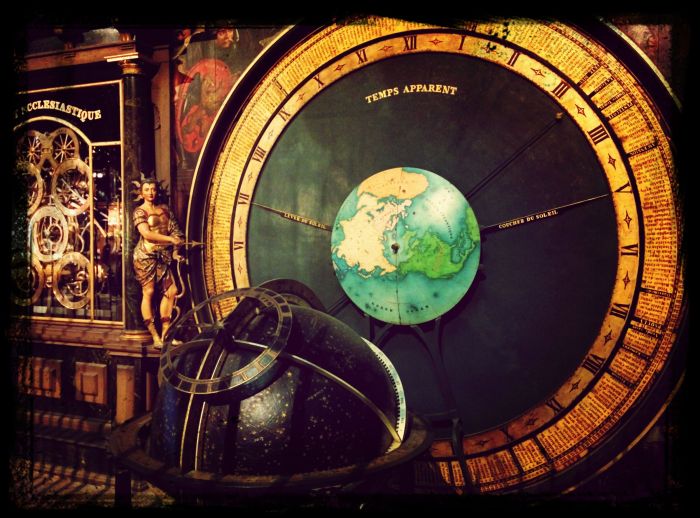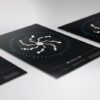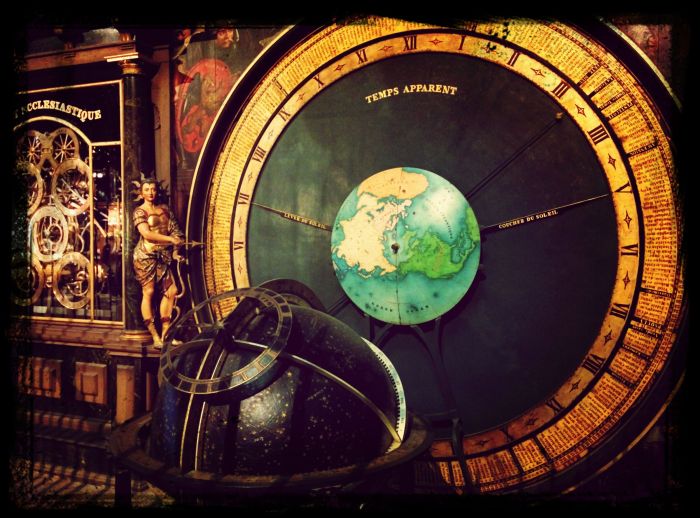Astrology pseudoscience data appeal ancient wisdom – Astrology: pseudoscience, data, and the appeal of ancient wisdom. This exploration delves into the fascinating world of astrology, examining its enduring popularity alongside its questionable scientific basis. We’ll unpack the psychological and cultural factors that contribute to its appeal, while simultaneously scrutinizing the lack of empirical evidence and the often-vague nature of astrological predictions. How does the concept of “ancient wisdom” play a role in justifying these claims?
A critical look at the data used, its interpretation, and the historical context surrounding it is essential to a balanced understanding. We’ll also explore how individual interpretations shape personal experiences with astrology, providing a comparative analysis with similar belief systems like numerology and tarot.
The appeal of astrology is multifaceted, drawing from a desire for meaning and connection. Its use of data, however, is inherently limited and susceptible to subjective interpretation. We’ll analyze how astrological data is often presented and how its subjective interpretation contrasts with scientific methodology. The idea of “ancient wisdom” is frequently used to legitimize astrological claims, even though interpretations of historical texts and traditions are often selectively applied.
Defining the Appeal of Astrology
Astrology, despite its lack of scientific basis, continues to captivate millions worldwide. Its enduring popularity stems from a complex interplay of psychological, social, and cultural factors, interwoven with a historical narrative that positions it as a repository of ancient wisdom. Understanding this appeal provides valuable insights into human motivations and beliefs.The appeal of astrology is multifaceted. It taps into fundamental human desires for meaning, prediction, and connection.
This is not just a matter of entertainment but a potent force in shaping personal narratives, influencing choices, and creating a sense of shared identity within communities. Its enduring popularity across generations reveals a deep-seated need for frameworks that explain the world and our place within it.
Psychological Factors in the Appeal
The human desire for control and predictability plays a significant role in the appeal of astrology. Astrological interpretations offer a framework for understanding life’s complexities and potential future events, even if those interpretations are based on non-empirical principles. This perceived control can alleviate anxieties and foster a sense of personal agency, offering comfort in navigating the uncertainties of life.
Furthermore, the personalized nature of astrological readings resonates with the inherent human need for validation and belonging. Individualized interpretations can foster a sense of uniqueness and specialness, affirming an individual’s place in the cosmos.
Social and Cultural Factors
Astrology’s appeal is deeply embedded in social and cultural contexts. The shared understanding and practices associated with astrology can foster a sense of community and belonging. Social gatherings, online forums, and personal interactions often revolve around astrological discussions, creating shared experiences and interpretations. This social aspect further reinforces the perceived validity of astrological concepts. Furthermore, astrology’s presence in popular culture, from books and movies to social media trends, perpetuates its visibility and accessibility, making it a significant part of everyday life for many.
While astrology’s pseudoscience data might appeal to a desire for ancient wisdom, it’s worth considering alternative career paths. For new tech jobs, forget Amazon and Microsoft; try the US government instead, which often offers unique and challenging opportunities. for new tech jobs forget amazon and microsoft try the us government instead. Ultimately, though, the allure of astrology’s perceived wisdom, despite its lack of scientific backing, remains strong.
Historical and Contemporary Reasons
For centuries, astrology has been intertwined with various cultures and civilizations. Ancient civilizations, from the Babylonians to the Greeks, developed sophisticated astrological systems that were deeply integrated into their belief systems and social structures. These historical connections contribute to the perception of astrology as possessing a rich and ancient wisdom, lending it an air of authority and credibility.
Contemporary reasons for its appeal include the continued desire for self-understanding and the search for meaning in an increasingly complex world. The accessibility of information through the internet and social media further amplifies its reach and impact.
“Ancient Wisdom” and the Appeal of Astrology, Astrology pseudoscience data appeal ancient wisdom
The notion of “ancient wisdom” is a powerful draw for astrology. The idea that astrological principles have been understood and practiced for millennia imbues them with an aura of historical significance and reliability. This perceived age-old knowledge creates a sense of connection to a timeless tradition, offering a comforting sense of continuity with past generations. It is seen as a repository of profound insights into human nature and the universe.
This historical depth is a key factor in the perceived value and appeal of astrology.
Emotional and Spiritual Needs Fulfilled
Astrology can cater to a variety of emotional and spiritual needs. It provides a framework for understanding personal motivations, potential life paths, and relationships. This understanding can be profoundly comforting and reassuring for individuals navigating life’s challenges. Astrology often touches on concepts of destiny, fate, and free will, offering individuals a sense of direction and purpose. It can offer a path for self-discovery, helping people to understand their strengths and weaknesses, and potentially inspiring personal growth.
Comparison with Other Belief Systems
| Feature | Astrology | Numerology | Tarot |
|---|---|---|---|
| Underlying Principles | Positions of celestial bodies influence human affairs. | Numerical values of names and dates hold symbolic significance. | Cards symbolize different aspects of life and offer guidance. |
| Source of Knowledge | Ancient observations and interpretations. | Mathematical principles and symbolic associations. | Mystical interpretations of symbolic cards. |
| Focus | Predicting events and understanding personality traits. | Understanding the nature of numbers and their impact on life. | Seeking guidance and understanding hidden meanings. |
| Emotional Needs | Offers a framework for self-understanding and life’s trajectory. | Offers a way to structure thoughts and find meaning. | Provides insights into decision-making and self-reflection. |
This table highlights the core differences and similarities between astrology, numerology, and tarot, illustrating how each system attempts to explain and predict human experiences using distinct principles and approaches. Each system caters to different facets of the human desire for meaning and control.
Examining Pseudoscientific Aspects
Astrology, despite its enduring popularity, falls short of the rigorous standards of scientific methodology. Its claims about the influence of celestial bodies on human affairs lack empirical support and are often based on flawed reasoning. This section delves into the specific ways astrology fails to meet scientific criteria, highlighting the absence of evidence, logical fallacies, and the inherent vagueness of its predictions.Astrology’s reliance on ancient wisdom and mystical interpretations contrasts sharply with the scientific method’s emphasis on observation, experimentation, and testable hypotheses.
The absence of a robust, verifiable mechanism linking planetary positions to human behavior or personality traits is a significant hurdle for astrology to overcome if it were to become a legitimate science.
Failure to Meet Scientific Methodology
Astrology’s claims are not testable in a controlled, repeatable manner. Scientific theories must be falsifiable; that is, they must be capable of being proven wrong through observation or experimentation. Astrology, however, typically avoids precise predictions, making it difficult to definitively disprove its assertions. This lack of falsifiability is a key characteristic of pseudoscience.
Lack of Empirical Evidence
A substantial absence of empirical evidence undermines astrology’s credibility. No reputable scientific studies have demonstrated a correlation between planetary positions and human characteristics or events. While anecdotal accounts and personal experiences are common, these do not constitute scientific proof. Astrological claims often rely on post-hoc explanations, fitting interpretations to events after they have already occurred, rather than making predictions that can be rigorously tested.
Logical Fallacies and Biases
Astrological interpretations often rely on logical fallacies, such as the post hoc ergo propter hoc fallacy (assuming that because one event follows another, the first caused the second). Furthermore, confirmation bias, the tendency to seek out and interpret information that confirms pre-existing beliefs, plays a significant role in the acceptance and perpetuation of astrological ideas. For instance, individuals might selectively recall or interpret astrological readings that align with their expectations, while ignoring those that don’t.
Vague and General Predictions
A recurring characteristic of astrological predictions is their vagueness and generality. This allows for multiple interpretations and makes it easy for individuals to find aspects of the prediction that seem to apply to them. For example, a prediction of “potential for new beginnings” could be applied to numerous situations, ranging from starting a new job to initiating a relationship.
This lack of specificity renders astrological forecasts virtually impossible to disprove.
Scientific vs. Pseudoscientific Claims: A Comparison
| Characteristic | Scientific Claim | Pseudoscientific Claim (Astrology) |
|---|---|---|
| Testability | Claims are falsifiable; experiments can be designed to test predictions. | Claims are often vague and lack specific predictions that can be tested. |
| Evidence | Claims are supported by empirical data and rigorous testing. | Claims are often based on anecdotal evidence, personal experiences, or ancient texts. |
| Mechanism | Explanations are based on demonstrable mechanisms and principles. | Explanations often lack a clear, verifiable mechanism linking cause and effect. |
| Predictive Power | Predictions are specific and testable, with clear criteria for success or failure. | Predictions are often vague and general, allowing for various interpretations. |
| Peer Review | Claims are subjected to scrutiny by experts in the field. | Claims often lack rigorous peer review and are presented as unassailable truths. |
The Role of Data in Astrology
Astrology, despite its widespread appeal, operates on a foundation of data that is fundamentally different from scientific data. It uses a complex system of celestial positions and interpretations, often presented as a form of ancient wisdom, but with a crucial gap in empirical evidence. The process of gathering, interpreting, and applying this data differs significantly from how scientific data is collected and analyzed.Astrology’s approach to data is deeply intertwined with the concept of cosmic influences and symbolic interpretations.
This contrasts sharply with scientific methodologies, which rely on verifiable observations, repeatable experiments, and rigorous analysis. The very nature of astrological data, its sources, and the methods of interpretation contribute to its inherent limitations and biases.
Astrological Data and its Limitations
Astrological data primarily relies on the positions of celestial bodies at a specific moment in time. These positions are meticulously calculated and documented. However, the interpretation of these positions is not standardized or objective. Instead, it’s often shaped by cultural contexts, historical beliefs, and individual interpretations. The accuracy of astrological predictions is not established through empirical validation.
Sources of Astrological Data
Astrological data draws from various sources, including astronomical observations, historical records, and cultural traditions. The accuracy of astronomical observations is dependent on the precision of the instruments used. Historical records, while offering valuable insights into past beliefs and practices, can be influenced by subjective biases and incomplete information. Cultural traditions add another layer of interpretation, introducing symbolic meanings and associations that may not be universally accepted or verifiable.
Subjective Interpretation of Astrological Data
Astrology frequently relies on subjective interpretations of astrological charts. Different astrologers may arrive at vastly different conclusions regarding the same chart, reflecting the lack of a standardized, objective methodology. This subjectivity underscores the difficulty in assessing the validity or reliability of astrological predictions. For example, the same planetary alignment might be interpreted as auspicious by one astrologer and ominous by another.
Historical and Cultural Contexts
The understanding and use of astrological data are deeply embedded in historical and cultural contexts. Different cultures have developed unique systems of interpretation, incorporating symbolic meanings specific to their traditions. This diversity in interpretation further complicates any attempt to establish universal or objective truths within astrology. For instance, the significance attributed to the planet Mars might differ considerably between ancient Roman and modern Western interpretations.
Types of Astrological Data and Interpretation
| Type of Data | Source | Interpretation |
|---|---|---|
| Planetary Positions | Astronomical calculations | Interpreted based on the perceived influence of each planet on different aspects of life, often symbolically linked to personality traits or events. |
| Zodiac Signs | Cultural traditions | Associated with specific personality traits and characteristics, often reflecting societal norms and beliefs of the time. |
| Aspects (Angles between planets) | Astronomical calculations | Evaluated based on the perceived harmonious or disharmonious relationships between planets, potentially influencing events or character traits. |
| Houses (Astrological Chart Divisions) | Cultural and traditional models | Represent different areas of life, like career, relationships, or health. Interpretations are highly subjective. |
The Concept of “Ancient Wisdom”

Astrology often invokes the idea of “ancient wisdom” to lend credibility to its claims. This appeal relies on the assumption that hidden knowledge, passed down through generations, provides insights into human destiny and the universe. This supposed wisdom is often presented as timeless and universally applicable, transcending modern scientific understanding. However, a closer examination reveals that this “ancient wisdom” is frequently misrepresented and selectively interpreted to support contemporary astrological practices.The appeal to ancient wisdom in astrology is a powerful rhetorical device.
It suggests a connection to a deeper, more profound understanding of the cosmos, implying that astrology has roots in a tradition far older than modern science. This appeal plays on the human desire for connection to something larger than ourselves, and for explanations that seem beyond the grasp of ordinary comprehension. It also often taps into a sense of mystery and wonder surrounding the past.
Different Uses of “Ancient Wisdom”
Astrology often claims that its principles are rooted in ancient texts and traditions, frequently drawing upon interpretations of texts from various cultures and time periods. These sources are often cited to support astrological principles, like the influence of planetary positions on human affairs. The purported ancient wisdom is used to legitimize astrological claims, presenting them as having a long and venerable history.
This perceived historical continuity is meant to give astrology a sense of authority and permanence, often contrasting it with the perceived instability of modern scientific understanding.
Historical Context of Cited Texts
The historical context of the texts and traditions used to support astrological claims is crucial. For example, ancient Mesopotamian astronomical observations, though undeniably important in their time, were not intended to predict individual destinies. Their primary function was often to understand and track the cyclical patterns of celestial bodies for agricultural purposes or religious rituals. Interpretations of these ancient observations have often been significantly altered over time, to fit the needs of astrological practitioners.
Selective Application of Interpretations
Interpretations of “ancient wisdom” are often selectively applied to support contemporary astrological practices. Texts that might contradict modern astrological ideas are either ignored or reinterpreted to fit the current paradigm. This selective application is a common characteristic of pseudoscientific systems, allowing practitioners to maintain a consistent narrative even in the face of conflicting evidence. For instance, an ancient text might mention the influence of the moon on tides but be reinterpreted to imply a similar influence on human emotions or behavior.
Legitimizing or Obscuring Lack of Evidence
Astrology often uses “ancient wisdom” to legitimize its claims or to obscure the lack of scientific evidence. By associating its principles with a long and venerable tradition, astrology can create an aura of authority and reliability. This technique can make it difficult for individuals to critically evaluate astrological claims, especially when they are presented in a way that emphasizes the wisdom of the past.
Table: Ancient Wisdom Texts/Traditions and Their Relevance to Astrology
| Text/Tradition | Relevance to Astrology | Historical Context |
|---|---|---|
| Mesopotamian Astronomical Texts | Used to support the idea of planetary influence | Developed for agricultural and religious purposes, not individual prediction |
| Ancient Greek Philosophical Texts | Provided frameworks for interpreting celestial bodies | Philosophical speculation, not scientific observation |
| Indian Jyotish | Used to create horoscopes and predict events | System of predictive astrology |
| Chinese Astrology | Used to determine personality traits and auspicious dates | Part of a broader system of divination |
Astrology and Personal Interpretation
Astrology, with its focus on celestial bodies and their supposed influence on human affairs, is deeply intertwined with personal interpretation. The very nature of astrological analysis relies heavily on individual readings, and the meanings ascribed to planetary positions and aspects are far from universally agreed upon. This inherent subjectivity profoundly impacts how astrological data is understood and applied.Astrology thrives on the notion that individual charts, composed of planetary positions at the time of birth, offer unique insights into personality traits, potential challenges, and life directions.
These interpretations are not simply objective readings of cosmic patterns but are heavily colored by the individual astrologer’s understanding and the recipient’s own belief system.
Variability in Interpretations
Astrological interpretations are highly personalized, and no two readings are exactly alike. This stems from several factors. The same planetary positions can be interpreted differently depending on the astrologer’s school of thought or even their personal experiences. Furthermore, the interpretation of a particular aspect (e.g., a conjunction, opposition, or square) can vary significantly based on the astrologer’s emphasis on certain astrological factors.
This flexibility and individual interpretation are often touted as the strength of the practice, allowing for a nuanced understanding of each person.
Role of Personal Beliefs and Experiences
Personal beliefs and experiences significantly shape an individual’s understanding of astrological readings. Someone predisposed to seeing the positive aspects of their chart will likely interpret the data in a way that emphasizes their strengths and potential. Conversely, an individual with negative expectations might focus on the challenges highlighted in their chart. This subjective lens through which the astrological data is viewed is crucial in understanding the interpretations’ impact on an individual’s life.
Tailoring Readings to Individuals
Astrological readings are often tailored to specific individuals. Instead of a generic prediction for all individuals born under a particular sign, astrologers often create personalized interpretations based on the unique planetary configurations in a person’s birth chart. These personalized readings focus on the specific aspects of the birth chart that are relevant to the individual’s life situation and concerns.
While astrology’s pseudoscientific data might appeal to those seeking ancient wisdom, it’s important to remember that the world of tech is constantly evolving, like Palo Alto Networks’ upcoming investor event0. Palo Alto Networks to present at upcoming investor event0 highlights this evolution. Ultimately, though, the allure of astrology’s supposed wisdom, despite its lack of scientific backing, remains a fascinating case study in human fascination with the unknown.
Techniques for Personalized Interpretations
Astrologers employ various techniques to create personalized astrological interpretations. These include analyzing the positions of planets, aspects between planets, and the houses where planets reside in a birth chart. Furthermore, understanding the individual’s specific questions, concerns, or life goals can be incorporated into the interpretation to offer tailored insights. The astrologer carefully considers these factors to provide relevant and personalized interpretations.
Steps in a Typical Astrological Reading
| Step | Description |
|---|---|
| 1. Gathering Information | The astrologer collects essential data, including the date, time, and place of birth. |
| 2. Creating the Birth Chart | Using the birth data, the astrologer calculates the positions of planets, the Sun, Moon, and other celestial bodies. |
| 3. Analyzing Planetary Positions | The astrologer studies the arrangement of planets and their aspects to identify patterns and potential influences. |
| 4. Identifying Themes and Patterns | Based on the analyzed positions and aspects, the astrologer identifies recurring themes, strengths, weaknesses, and potential challenges. |
| 5. Personalization of the Reading | The astrologer incorporates the individual’s questions, concerns, and life experiences to tailor the interpretation to their specific situation. |
| 6. Communicating the Reading | The astrologer presents the interpretation in a clear and understandable manner, often incorporating symbolic language and metaphors. |
Illustrative Examples of Astrological Claims
Astrology, with its intricate web of celestial alignments and supposed influences, often makes claims about human behavior, personality traits, and even future events. These claims, however, are frequently presented in a way that makes them difficult to test or verify, often relying on vague language and symbolic representations rather than clear, measurable definitions. This inherent ambiguity makes it challenging to assess their validity.These claims are typically couched in pronouncements about “energies” and “influences” rather than straightforward predictions.
While astrology’s pseudoscientific data might seem to tap into a desire for ancient wisdom, it’s interesting to consider how modern tech like Apple’s new iCloud Plus features, including encrypted private relay apples new icloud plus features include encrypted private relay , demonstrates a similar appeal to privacy and secure data handling. Ultimately, both the ancient wisdom and modern tech fascination with security and data integrity point to a fundamental human desire for order and protection in a complex world.
The very nature of these pronouncements often obscures any possibility of empirical testing. This is a critical aspect to understanding the pseudoscientific nature of astrology.
Examples of Astrological Claims and Interpretations
Astrological claims frequently lack precise definitions. For example, a claim about someone born under a certain sign having a “creative spirit” doesn’t specify what constitutes creativity. Is it artistic expression, problem-solving, or something else? Without a clear, measurable definition, the claim remains essentially untestable. Similarly, a prediction that someone will experience “challenges” in a particular area of life doesn’t provide any context or specifics.
What constitutes a challenge? How would one measure the degree of challenge? These ambiguities are characteristic of astrological pronouncements.
Vague Language and Symbolic Representations
Astrology relies heavily on vague language and symbolic representations. Consider the concept of planetary “aspects.” These are described as angles between planets in the horoscope, but the exact meaning and impact of these aspects are often left to subjective interpretation. For instance, a conjunction might be interpreted as a powerful influence, while an opposition might be seen as a source of conflict.
These interpretations are not based on empirical evidence but rather on the symbolic meanings attributed to these positions.
Difficulty in Evaluating Accuracy
Given the lack of clear definitions and the reliance on symbolic representations, evaluating the accuracy of astrological claims proves extremely difficult. There’s no standardized methodology for measuring the accuracy of an astrological prediction. Even if an astrological prediction appears to come true, there’s no way to isolate the astrological influence from other factors that might have contributed to the outcome.
This lack of empirical validation is a significant weakness of astrological claims.
Example of a Vague Astrological Prediction
Let’s consider a prediction that someone born under the sign of Aries will experience “a period of significant change in their relationships.” This prediction is remarkably vague. What constitutes “significant change”? Is it a breakup, a reconciliation, a new friendship, or something else? The lack of specificity allows for a wide range of interpretations, making it nearly impossible to definitively assess its accuracy.
The prediction can be seen as “true” in a multitude of situations, simply by adjusting the interpretation. This vagueness is a hallmark of astrological pronouncements, rendering them largely untestable.
The Evolution of Astrology: Astrology Pseudoscience Data Appeal Ancient Wisdom

Astrology, with its claims of cosmic influences on human affairs, has a rich and complex history, evolving across cultures and time. Its interpretations of celestial patterns have been woven into various belief systems, influencing everything from personal decisions to societal structures. Tracing this evolution reveals not only the changing understanding of the cosmos but also the shifting perspectives on human nature and destiny.Astrology’s evolution is not a linear progression but a dynamic interplay of cultural influences, scientific advancements, and philosophical shifts.
From ancient civilizations to modern interpretations, the practices and beliefs surrounding astrology have adapted and transformed. The very idea of what constitutes a “cosmic influence” has changed over time, reflecting broader societal shifts in understanding the universe and our place within it.
Key Figures in Astrology’s History
Early astrologers, often priests or scholars, played crucial roles in interpreting celestial events and their potential impact on human lives. Their observations and interpretations shaped the foundational principles of astrology. Notable figures include Ptolemy, whose work,Tetrabiblos*, became a cornerstone of Western astrology for centuries, influencing its methodology and principles. Other influential figures, like Al-Biruni, contributed significantly to the development of astrological practices in the Islamic world.
Astrology’s Influence from Other Belief Systems
Astrology wasn’t isolated; it interacted and intertwined with other belief systems. For instance, in ancient Mesopotamia, astrological practices were deeply integrated with religious rituals and the divination of the gods’ will. Similarly, in ancient Greece, astrology blended with philosophical thought, exploring connections between the cosmos and human behavior. This integration is evident in the work of figures like Plato and Aristotle, who considered the influence of the heavens on human affairs.
Furthermore, various religious traditions, from Hinduism to Chinese culture, incorporated astrological concepts into their spiritual and social structures.
Cultural Adaptations of Astrological Practices
Astrology’s interpretations and practices have been adapted to diverse cultural contexts, resulting in variations in its application. The principles of Western astrology, for instance, differed significantly from the astrological traditions found in the East, with distinct approaches to planetary placements and their interpretations. The adaptation of astrology to various cultures is also evident in the diverse approaches to determining the timing of significant events, like weddings or harvests.
Tracing Key Milestones in Astrology’s History
| Period | Key Milestone | Description |
|---|---|---|
| Ancient Mesopotamia (c. 3000-539 BCE) | Development of early astrological systems | Early astrologers observed celestial bodies and developed methods for predicting events. |
| Ancient Greece (c. 600 BCE – 300 CE) | Integration of astrology with philosophical thought | Philosophers like Plato and Aristotle incorporated astrological concepts into their cosmological models. |
| Hellenistic Period (c. 323 BCE – 30 BCE) | Ptolemy’s – Tetrabiblos* | Ptolemy’s work systematized Western astrology, shaping its practices for centuries. |
| Islamic Golden Age (c. 8th-13th centuries) | Development of Islamic astrology | Astrologers like Al-Biruni made significant contributions to the development of astrological practices in the Islamic world. |
| Renaissance and beyond | Shifting interpretations of astrology | Astrology’s interpretations and application continued to evolve in response to scientific and philosophical advancements. |
Changes in Astrological Claims and Interpretations Over Time
Astrological claims and interpretations have demonstrably evolved. For instance, the concept of planetary influence has been reinterpreted in light of new scientific discoveries, while interpretations of specific planetary placements have adapted to evolving societal views. Moreover, astrological practices have been influenced by broader societal changes, such as the rise of scientific thought.
Last Point
In conclusion, astrology’s enduring appeal, despite its lack of scientific backing, highlights the human desire for meaning and connection. The concept of “ancient wisdom” plays a significant role in its appeal, but the reliance on subjective interpretations and the lack of empirical evidence raise serious questions about its validity. While astrology can offer a framework for personal reflection and self-discovery, its claims should be critically examined in light of scientific methodology.
The exploration of astrology’s data, historical evolution, and individual interpretations reveals a rich tapestry of human beliefs and practices.





